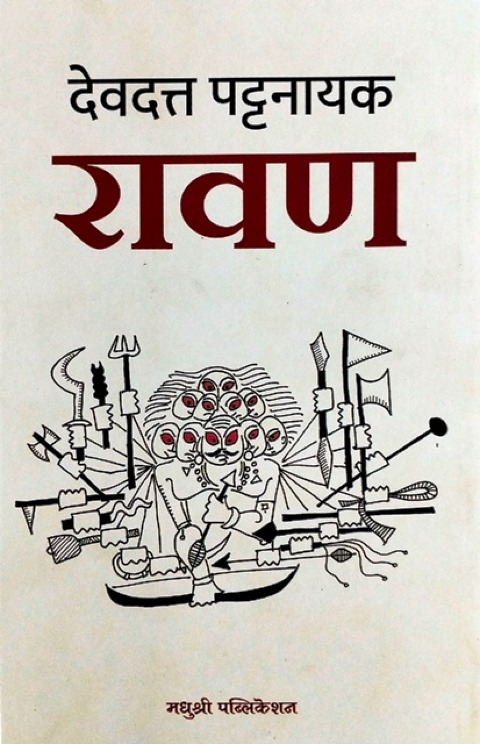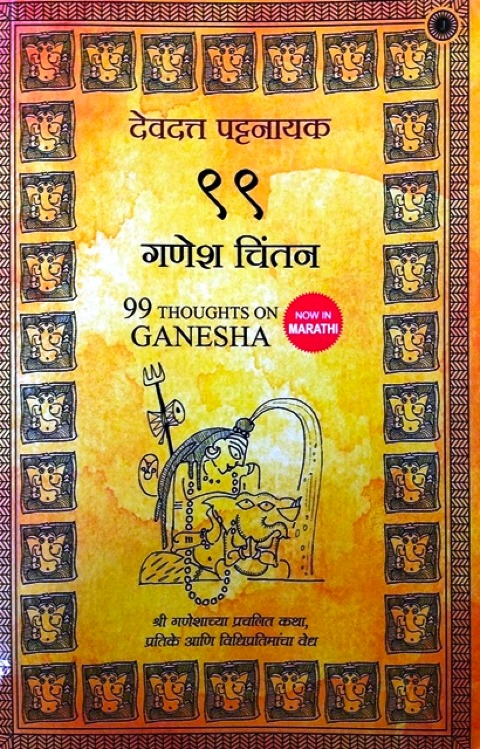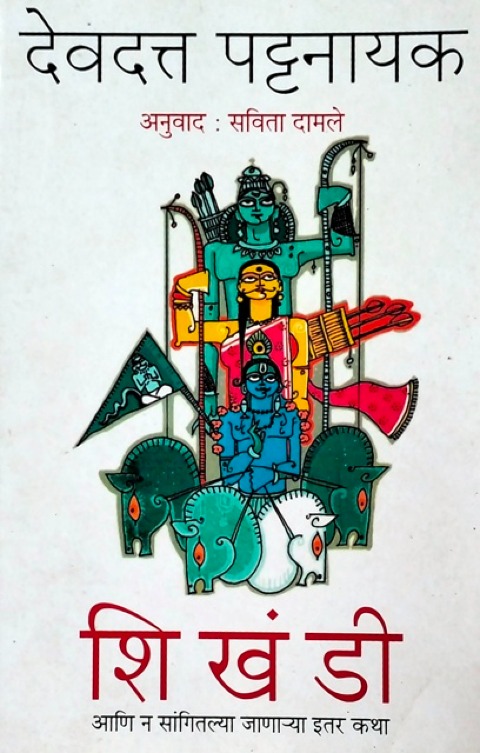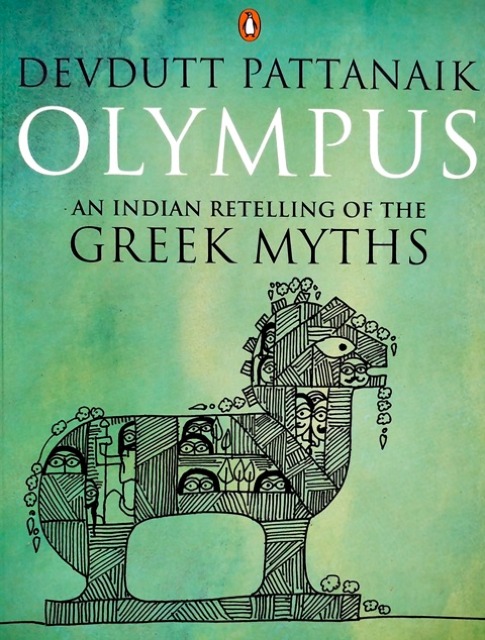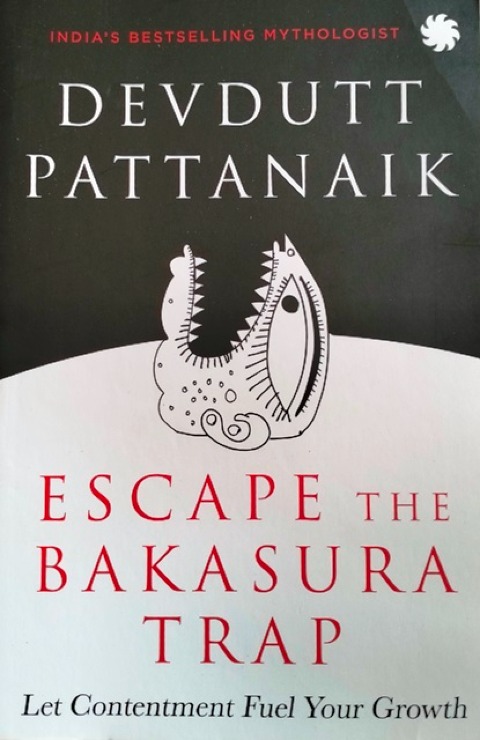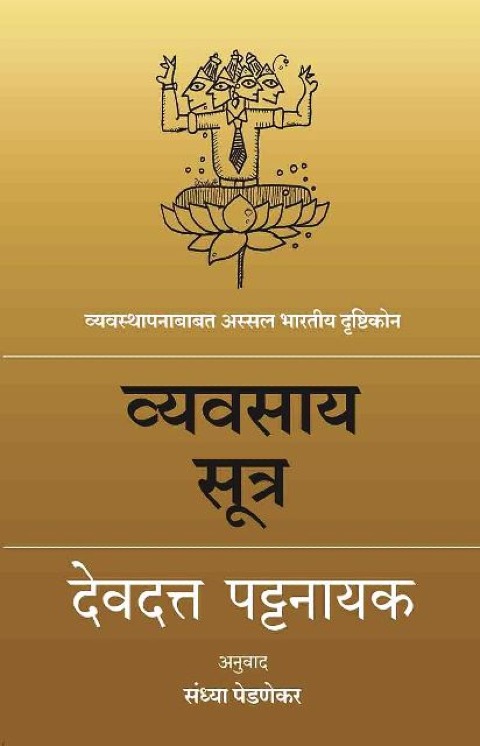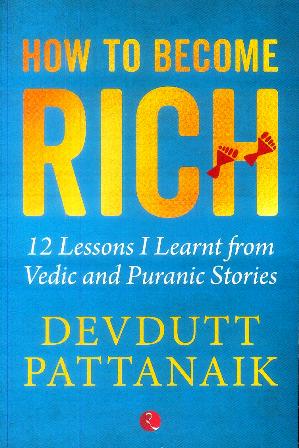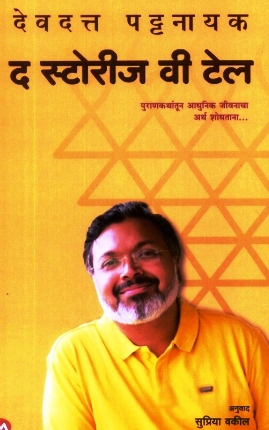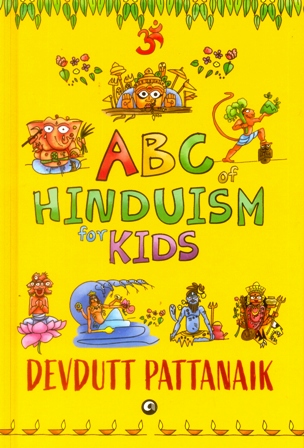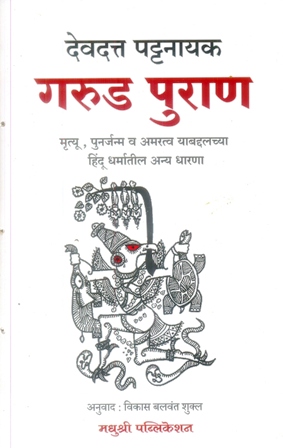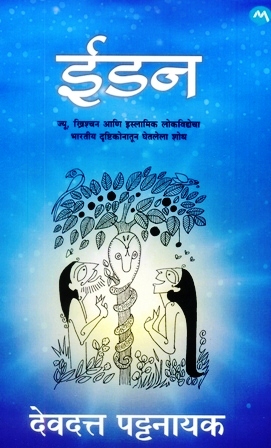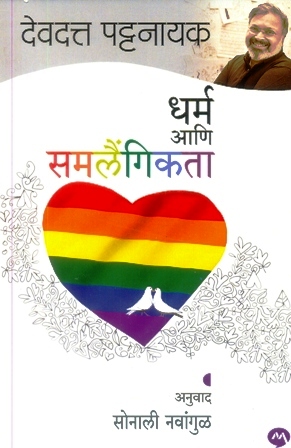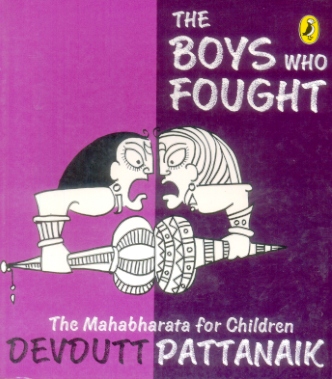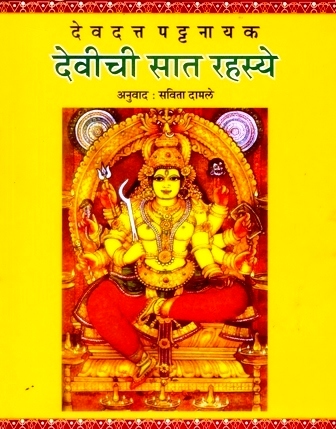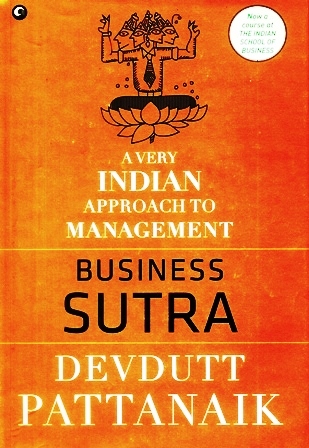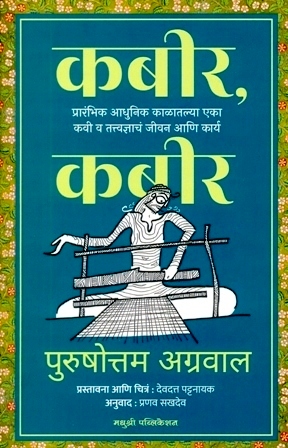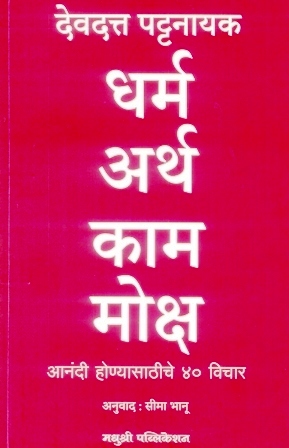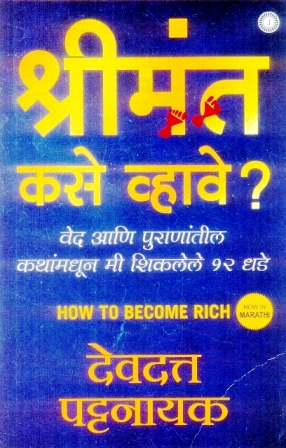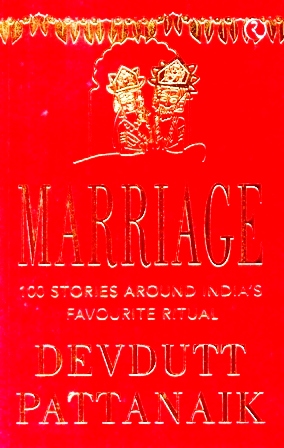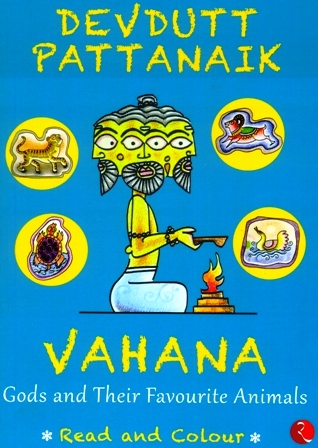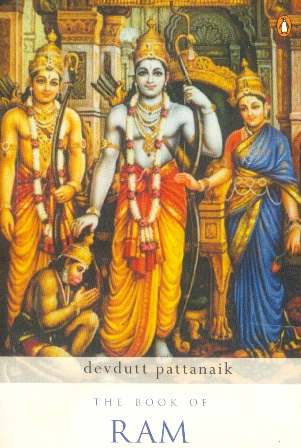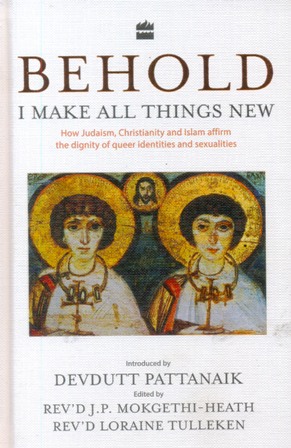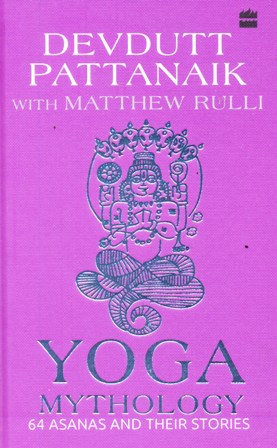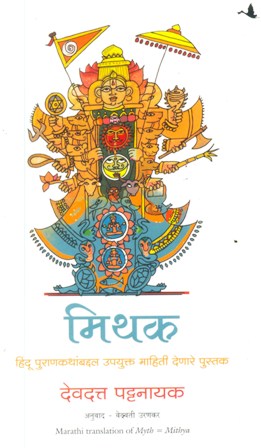-
Ravan (रावण)
आपल्या भावांप्रति असलेल्या प्रेमाबाबत राम आणि रावण यांच्यात काय फरक होता ? शूर्पणखेने रावणाविरुद्ध कशा प्रकारे षड्यंत्र रचलं ? कोण होती रावणाची बहीण कुंभिनी ? बौद्ध परंपरेत रावणाविषयी कोणती समजूत आहे ? रामायणातील खलनायक लंकाधिपती रावण याच्याविषयी असे अनेक प्रश्न भारतीय जनमानसात उपस्थित होत राहतात. हे पुस्तक भारतातील सर्वांत विख्यात महाकाव्य रामायण आणि रावण यांचं विस्तृत विश्लेषण करत, रावणास सविस्तरपणे जाणून घेण्याची वाट मोकळी करतं. या ज्ञानी आणि महान राजाच्या कर्मांमुळे त्याचं राज्य आणि परिवार यांवर आपत्ती कोसळली. आधुनिक काळात पौराणिक गाथांच्या प्रासंगिकतेविषयी तर्कपूर्ण रीतीने लेखन करणारे देवदत्त पट्टनायक यांचं हे पुस्तक रावणाच्या पतनाची कारणं समजावून सांगण्याचा प्रयत्न करतं. इथे रावण एक मनोवैज्ञानिक अवस्थेचं रूपकही आहे. रावणाला समजून घेताना आपण स्वतःला आणि आपल्या व इतर लोकांच्या आत दडलेल्या रावणाला समजून घेऊ शकतो.
-
99 Ganesha Chintan (९९ गणेश चिंतन)
क्रिकेटच्या खेळात, ९९ धावा काढल्यानंतर, जेव्हा एक फलंदाज त्या प्रतिष्ठित शतकाच्या उंबरठ्यावर उभा राहतो, तेव्हा तो गणेशाशी संबंधित असलेल्या क्षणाचा अनुभव घेतो . भीती आणि अनिश्चितता त्याला वेढून टाकते; त्याच्या आणि त्याच्या यशामध्ये वास्तविक आणि काल्पनिक दोन्ही प्रकारचे अडथळे असतात: गोलंदाजाचा संभाव्य फिरकी त्याला व्यापून टाकू शकतो, त्याची स्वतःची चिंता त्याला लकवा देऊ शकते, जयजयकार करणारे चाहते त्याचे लक्ष विचलित करू शकतात . तेव्हा त्याला दैवी हस्तक्षेपाची आवश्यकता असते. त्याला लक्ष केंद्रित करावे लागते, सर्व अडथळ्यांपासून मुक्त व्हावे लागते, कामगिरी करावी लागते, अंतिम धाव घ्यावी लागते आणि त्याला जे हवे आहे ते साध्य करावे लागते. दुसऱ्या शब्दांत, त्याला गणपतीचा विचार करावा लागतो. अडथळे दूर करून समृद्धी आणि शांती आणणाऱ्या त्या आराध्य हत्तीच्या डोक्याच्या हिंदू देवाच्या कथा, चिन्हे आणि विधी चांगल्या प्रकारे समजून घेण्यासाठी हे पुस्तक ९९ ध्यान एकत्र करते . गणपती, गजानन, विनायक किंवा पिल्लयार म्हणून ओळखले जाणारे , तो आपल्या सर्वांना जीवन नावाच्या खेळात शतक झळकावण्यास मदत करू शकतो .
-
Shikhandi Aani Na Sangitalya Janarya Katha (शिखंडी आणि न सांगितल्या जाणाऱ्या कथा)
पितृसत्ताक व्यवस्था म्हणते कि पुरुष हे स्त्रियांपेक्षा श्रेष्ठ आहेत. स्त्रीवाद स्पष्ट करतो की स्त्री आणि पुरुष सामान आहेत. भिन्नत्व विचारते की पुरुषत्व म्हणजे काय आणि स्त्रीत्व म्हणजे काय. भारतीय पुराणशास्त्राचे अभ्यासक देवदत्त पटनायक म्हणतात, भिन्नत्त्व हे फक्त आधुनिक, पाश्चात्य किंवा लैंगिकच असते असं नाही. हिंदू धर्मातील लेखी आणि मौखिक परंपरांचं नीट निरीक्षण करा, त्यातील काही परंपरा तर दोन हजार वर्षांपूर्वीच्या आहेत. त्यांत ' शिखंडी' सारख्या काही दुर्लक्षित कथा दिसतील. पत्नीला तृप्त करण्यासाठी शिखंडी पुरुष बनली होती. महादेवांन भक्तिणीच्या लेकीची प्रसूती करण्यासाठी स्त्रीरूप घेतलं होतं. पाटील ज्ञान मिळावं म्हणून चूडाला पुरुष बनली होती. सामवान आपल्या मित्राची पत्नी बनला होता. अशा बऱ्याच कथा तुम्हाला आढळून येतील. खेळकर आणि हृदयस्पर्शी असलेल्या आणि कधीकधी अस्वस्थही करणाऱ्या या कहाण्यांची तुलना त्यांच्या समकालीन मेसापोटेमियन, ग्रीक, चिनी आणि बायबली कहाण्यांशी आपण करतो तेव्हा ह्या वेगळेपणाचा अर्थ लावण्याचा खास भारतीय दृष्टिकोन आपल्यासमोर उघड होतो.
-
Olympus : An Indian Retelling of The Greek Myths
• Olympus is the home of the Greek gods, much like Amravati of the Hindu devas. • Zeus, leader of Olympians, wields a thunderbolt like Indra and rides an eagle like Vishnu. • The feats of the Greek hero Heracles, known to Romans as Hercules, reminded many of Krishna, as did his name, ‘Hari-kula-esha’ or lord of the Hari clan. • The Greek epic of a husband sailing across the sea with a thousand ships to bring his wife, Helen, back from Troy seems strikingly similar to the story of Ram rescuing Sita from Lanka. Is there a connection between Greek and Hindu mythology then? Does it have something to do with a common Indo-European root? Or maybe an exchange of ideas in the centuries that followed the arrival of Alexander the Great, when Greek emissaries travelled to the kingdoms of Mathura and Magadha? In this book, mythologist Devdutt Pattanaik turns his attention to ancient Greek tales and explores a new world of stories. Long have Europeans and Americans retold Indic mythologies. It is time for Indians to reverse the gaze.
-
Escape The Bakasura Trap
A unique mythological ‘self-help’ book that is a companion to Hope Who made contentment a bad word? Hunger, commonly marketed as ambition and aspiration,fuels growth without accountability, resilience or kindness. This is the Bakasura trap. This is where our world is. Contentment, commonly misunderstood as complacency or compromise, fuels growth with accountability, resilience and kindness. That is the Bhima escape. That is where our world can be. This book re-discovers this path, first revealed by Hanuman in the Mahabharata. Insightful and inspiring, Escape the Bakasura Trap is another classic from one of our great mythologists and thinkers.
-
Vyavasay Sutra (व्यवसाय सूत्र)
व्यवसाय व्यवस्थापनातील भारतीय दृष्टिकोनास अधोरेखित करणाऱ्या या पुस्तकात नेतृत्व प्रशिक्षक आणि पौराणिक कथांचे अभ्यासक देवदत्त पट्टनायक यांनी या विषयातील वस्तुनिष्ठतेच्या दिखाव्यास बाजूला सारले आहे. पाश्चिमात्य श्रद्धांमध्ये रुतलेले आधुनिक व्यवसाय व्यवस्थापनाचे निकष, त्यातील उद्दिष्टपूर्तींबाबत त्यांची असलेली कठोर आसक्ती आणि भागधारकांचे वाढते महत्त्व हे देवदत्त यांनी या पुस्तकात विस्तृत मांडलेले आहे. उलटपक्षी, व्यवसाय करण्यातील भारतीय पद्धत – जी भारतीय पौराणिक कथांमध्ये तर दिसून येते, पण प्रत्यक्ष व्यवस्थापनात मात्र तिचा उपयोग केला जात नाही – ही पद्धत कशारीतीने सर्वसमावेशकतेचा पुरस्कार करणारी आहे, सापेक्षता आणि वैविध्य बाळगणारी आहे आणि ध्येयपूर्तीतीच्या प्रत्येक स्तरावरील सर्वंकष यशप्राप्तीचा ती कशा प्रकारे विचार करते, हे विशद केलेलं आहे.
-
How To Become Rich
Lakshmi is worshipped as the goddess of wealth. Her arrival is considered auspicious, while her departure is bad and inauspicious. In temples, gods are bedecked with jewels; during festivals, our houses are decorated with flowers, lamps and lakshmi’s footprints. Clearly, she is a much-desired goddess. Yet, some friends and relatives, even gurus, tell us not to be money-minded, or that it is wrong to equate Lakshmi with money because Lakshmi is spiritual and money is material. Why this mockery of money? Why are we driving Lakshmi out of India instead of inviting her lovingly into our lives? How to become rich is a simple retelling of the stories of Lakshmi found in the Vedas and Puranas. Devdutt Pattanaik deftly explains what Hinduism says about economics at a personal level as well as at the social level.
-
The Stories We Tell (द स्टोरीज वी टेल)
‘द स्टोरीज वी टेल : पुराणकथांतून आधुनिक जीवनाचा अर्थ शोधताना’ या पुस्तकात प्रख्यात पुराणकथा अभ्यासक देवदत्त पट्टनायक यांनी भारतातील व जगभरातील पुराणकथांच्या खजिन्यातून ७२ रत्ने निवडली आहेत. `टी टाईम टेल्स’ या त्यांच्या वेबकास्टमध्ये त्यांनी सांगितलेल्या कथांवर हे पुस्तक आधारित आहे. या पुस्तकात त्यांनी पुराणकथांतून आधुनिक जीवनाचा अर्थ शोधण्याचा प्रयत्न केला आहे. हे पुस्तक वाचकाला काळाच्या प्रदीर्घ टप्प्याची अनोखी सफर घडवते.
-
ABC of Hinduism for kids
A for…atma! B for…Brahma! C for…caste! Renowned mythologist Devdutt Pattanaik reimagines a Hindu way for young readers. Covering everything from major Hindu deities such as Brahma, the creator of the universe, and Devi, the powerful goddess who takes many forms, to complicated ideas of atma and the caste system, this book explores twenty-six ideas and figures from Hindu myth, each corresponding to a letter of the alphabet. With its simple writing style and fun, colourful illustrations, ABC of Hinduism for Kids is the perfect introduction to a Hindu way of life for your little ones.
-
Eden (ईडन)
ईडन एका अनोख्या भारतीय प्रिझममधून अब्राहमिक मिथकांच्या विशाल जगाचा शोध घेते, जिव्हाळ्याच्या, पण अपमानास्पद नसणाऱ्या अशा कथाकथनाद्वारे आणि वाचकांना देवदूत, राक्षस, संदेष्टे, कुलपिता, न्यायाधीश आणि राजांच्या अनेक मोहक कथांचा परिचय करून देते. हे मेसोपोटेमियन, इजिप्शियन आणि झोरोस्ट्रियन पौराणिक कथांच्या कथा देखील सांगते ज्यात पुढे अब्राहमिक एकेश्वरवादाचाही उल्लेख येतो. जगभऱच्या धर्माधारित कल्पनांचा अभ्यासपूर्ण आढावा या पुस्तकातून अनुभवता येतो.
-
Dharm Ani Samlaingikta (धर्म आणि समलैंगिकता)
समलैंगिकता म्हणजे काय? आपले धर्म याबद्दल काय म्हणतात? हिंदू पौराणिक कथा, इस्लाम, जैन आणि बौद्ध धर्मातील साहित्यात याविषयी काय दृष्टीकोन दिसतो? या सगळ्या गोष्टी विचारात घेऊन देवदत्त पट्टनायक यांनी जगभरातील प्रत्येक धर्माचा समलैंगिकतेबद्दलचा काय विचार आहे, हे या पुस्तकात स्पष्ट केलं आहे. याशिवाय, निसर्गात समलैंगिकता सहजपणानं दिसते व त्यात अनैसर्गिक काही नाही असंही ते दाखवून देतात. अनेक संस्कृतींमध्ये समलैंगिकतेबद्दलची विचारसरणी सकारात्मक नसली तरी, आधुनिक काळात तिच्याकडे पाहण्याचा दृष्टीकोन बदलत चालला आहे आणि जगभरात समलैंगिकतेला कायदेशीर मान्यता मिळते आहे.प्रसिद्ध पुराणकथातज्ज्ञ देवदत्त पट्टनायक यांचं हे पुस्तक या विषयावरील अनेक गोंधळ दूर करण्याचा प्रयत्न आहे. खूप माहिती देणारं आणि वस्तुस्थितीबद्दल समृद्ध करणारं हे अप्रतिम पुस्तक आहे.
-
THE BOYS WHO FOUGHT
‘When you can fight for the meek without hating the mighty, you follow dharma.’In the forest, the mighty eat the meek. In human society, the mighty should take care of the meek. This is dharma. A hundred princes should look after their five orphaned cousins. Instead, they burnt their house, abused their wife and stole their kingdom. The five fought back, not for revenge but, for dharma. What came of the hundred’s fight against the five?India’s favourite mythologist brings to you this charmingly illustrated retelling of the Mahabharata that is sure to illuminate and enthrall a new generation of readers.
-
Business Sutra: A Very Indian Approach to Manageme
Business Sutra: A very Indian Approach to Management is a radical, nuanced approach to management, business and leadership in a progressively polarized world. In this landmark book, bestselling author, leadership coach and mythologist Devdutt Pattanaik shows how, despite its veneer of objectivity, modern management is rooted in Western beliefs and obsessed with accomplishing rigid objectives and increasing shareholder value. By contrast, the Indian way of doing business, as apparent in Indian mythology but no longer seen in practice accommodates subjectivity and diversity and offers an inclusive, more empathetic way of achieving success. Great value is placed on darshan, that is, on how we see the world and our relationship with Lakshmi, the goddess of wealth. Business Sutra uses stories, symbols and rituals drawn from Hindu, Jain and Buddhist mythology to understand a wide variety of business situations that range from running a successful tea stall to nurturing talent in a large multinational corporation. At the heart of the book is a compelling premise: if we believe that wealth needs to be chased, the workplace becomes a rana-bhoomi - a battleground of investors, regulators, employers, employees, vendors, competitors and customers, if we believe that wealth needs to be attracted, the workplace becomes a ranga-bhoomi - a playground where everyone is happy.
-
Marriage
Marriage, by mythologist Devdutt Pattanaik, brings together stories from Vedic, Puranic, Tamil, and Sanskrit literature, from regional, classical, folk and tribal lore, from oral and textual traditions, across 3000 years of history and 3 million Square kilometres of geography, to reveal the diversity and fluidity of Indian customs and beliefs around marriage.
-
Vahana Gods And Their Favourite Animals
The gods needed animals to travel around the world and the animals needed the gods to learn how not to be hungry. This was an amazing idea, thanks to goddess Saraswati. This is how vahana came into being.
-
The Book Of Ram
He is Eka-vachani, a king who always keeps his word; Eka-bani, an archer who strikes his target with the first arrow; and Eka-patni, a husband who is eternally and absolutely devoted to a single wife. He is maryada purushottam Ram, the supreme upholder of social values, the scion of the Raghu clan, jewel of the solar dynasty, the seventh avatar of Vishnu, God who establishes order in worldly life. Hindus believe that in stressful and tumultuous times chanting Ram’s name and hearing his tale, the Ramayan, brings stability, hope, peace and prosperity. Reviled by feminists, appropriated by politicians, Ram remains serene in his majesty, the only Hindu deity to be worshipped as a king.
-
Behold I Make All Things New
In 2015, a historic panel discussion took place at the global Festival of Theology held in Sweden. Its objective was to examine what the sacred texts of the Abrahamic faiths - Judaism, Christianity and Islam - had to say about human sexuality. Behold, I Make All Things New is the outcome of the effort. This is a landmark work that recasts religion - especially Abrahamic faiths - as an ally and not an adversary of queer emancipation, and thus significantly informs the secular and legal movements for LGBTQ rights around the world. It follows in the same vein as I Am Divine, So Are You (2017), which put forth perspectives on sexuality from the Karmic faiths of Buddhism, Jainism, Sikhism and Hinduism, and played a small but significant role in the reading down of Section 377 of the Indian Penal Code. Taken together, the two groundbreaking books expand the conversation between world religions and human sexuality to a truly global level.
-
Yoga Mythology 64 Asanas and Their Stories
The popular names of many yogic asanas - from Virbhadra-asana and Hanuman-asana to Matsyendra-asana, Kurma-asana and Ananta-asana - are based on characters and personages from Indian mythology. Who were these mythological characters, what were their stories, and how are they connected to yogic postures? Devdutt Pattanaik's newest book Yoga Mythology (co-written with international yoga practitioner Matt Rulli) retells the fascinating tales from Hindu, Buddhist and Jain lore that lie behind the yogic asanas the world knows so well; in the process he draws attention to an Indic worldview based on the concepts of eternity, rebirth, liberation and empathy that has nurtured yoga for thousands of years.

